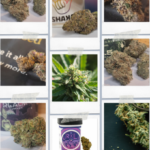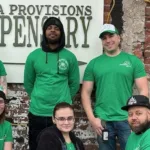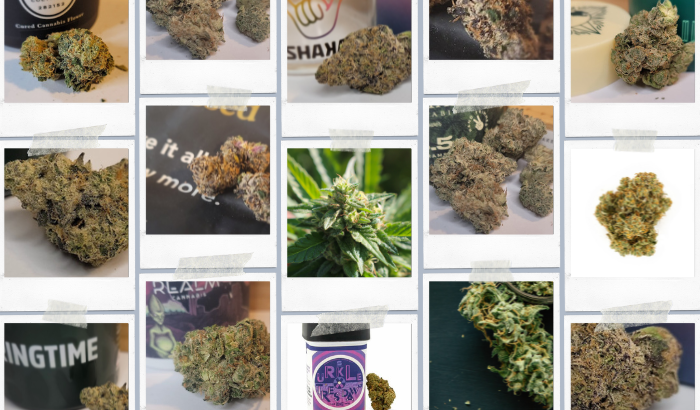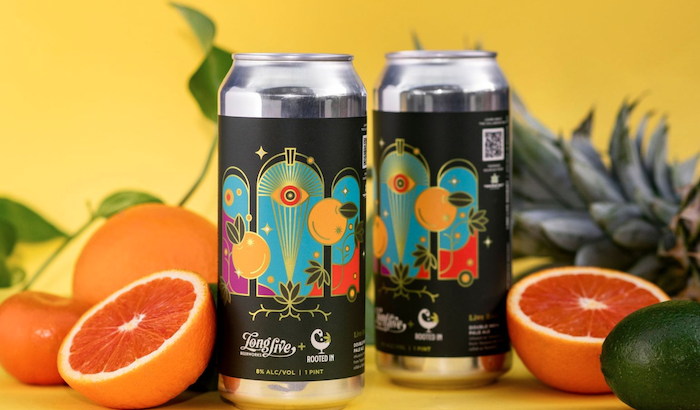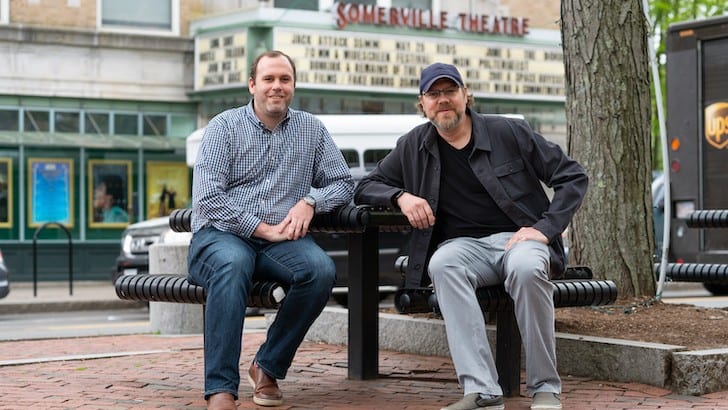
Earlier this month, two entrepreneurs filed an application in the City of Somerville that, if their plans are seen through and approved at all levels, could be a first for cannabis in Massachusetts. The Harvest Collaborative is currently a joint venture between Chris Vining and Alex Coon, but if things go per their vision, they will potentially have hundreds of area partners who together own 50% of the dispensary that they hope to open.
Before they begin raising approximately $1.25 million from area investors, or building out their reserved location at 255 Elm St. in Somerville, Coon and Vining have a mountain of work to climb over. I asked them both about their seemingly unique model, which they say “seeks to bring more equity and opportunity into the local cannabis industry.”
On location…
CV: The Somerville community is a big part of the application process. The [Somerville Licensing Commission] actually has a lot of questions about the community on its application, and when we were going through those we thought it was unique, and that [the city] deserves a unique business to go into it. Alex has been a resident for over 10 years; my girlfriend’s a longtime resident; it’s a special place, and we have a special way to bring a dispensary there.
AC: This is a way to differentiate ourselves in what is an incredibly competitive marketplace, and to do something that is closer to our hearts is going to be a lot easier, because it’s a lot of work. When we saw the regulations for Somerville, we thought we might as well throw our creativity at it, and we were able to make it fit our personality. I’m involved in the arts community in Somerville, and immediately we said, Let’s make this a local arts thing. Let’s really support the visual arts community. That’s a big part of it, and with our location being so central and so visible, it’s an opportunity to celebrate that. First of all, the front windows of our business are going to be mini galleries, and we’ll partner with local artists on a revolving basis. It fit our ideals, and we thought we were the perfect people to execute it.
CV: We asked our designer for a room for community, that can be used for job training for the cannabis industry and for other events that need space. It doesn’t just have to be for the cannabis community. That’s about 10% of our total square footage.
On the process so far…
AC: It’s incredibly complicated. We’re knee-deep in the Cannabis Control Commission process and have become familiar faces at all of the meetings. Knowing that process and doing everything correctly is one of the problems—it’s confusing and time-sucking. For us, it’s something we spend 75 percent of our time doing.
CV: We’re still early in the process, though. In terms of Somerville, we submitted the application, along with at least a dozen other groups, and we want this to get out there. We want people to know that this is the kind of business they can be a part of.
On investment opportunities…
CV: Once we have an agreement with Somerville, that’s when we’ll open up the investment vehicle. A lot of the risk will have been mitigated at that point.
AC: That’s really important. We’re not asking for any money from people in Somerville right now until we know this is a sure thing. We’re bearing all the costs, and all of that time and energy—the security plans, the parking plans, community outreach plans, everything that has to be done—we’re doing it all on our own. Then, when we know that we have something going forward, is when we can go out and get investments. A lot of people raise money and it might not go anywhere. I’m not going to offer this opportunity to my neighbors until I can look them in the face and say we have a good shot at making this happen.
CV: We’re going to be offering low-level investments so that regular people can invest in the cannabis industry. Usually, minimum investments are from $50,000 to $100,000. This is going to be on a much more micro level, hopefully the $1,000 to $2,000 range. (A board will be set up to make decisions regarding investments, disbursements, and other issues pertaining to the collaborative’s business.)
On crowdfunding…
AC: In order to make an early investment in a company, you typically have to be an accredited investor. And again, the minimum opportunity for many of these cannabis businesses—and I’ve seen a number of them—is out of reach for most people. With the [Massachusetts] crowdfunding exemption, you can really lower those minimums, and it can be tied to a person’s income, in that it can only be less than 5% of someone’s annual income. We’ll also cap the maximum investment as well. We can probably raise all of the money we need from just two people in Somerville, but we want to get a diverse group. From there, there’s the ability to reap dividends once there is a profit.
On the market…
AC: We know there’s competition, we know there are other people with compelling models, and we know there are other people out there with not-so-compelling models, what people are calling “Big Cannabis.” We don’t think there’s anybody like us out there, and we know there isn’t anyone with a connection to this city like Chris and I. They’ll have it in their own way, but our business is a reflection of who we are.





